
An emotional IQ survey.
- Subject:
- Education
- Material Type:
- Assessment
- Author:
- Billt Wrote
- Ed Pearcey
- Eleanor Bruce
- James Manktelow
- Jimmyboy Wrote
- Keith Jackson
- Rosie Robinson
- Simon Bell
- Steven Edwards
- Tom Mugridge
- Date Added:
- 11/22/2018

This is a collection of resources to teach Self-Management, including managing emotions, risk taking, being organized and finishing what you start.

An emotional IQ survey.
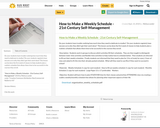
Do your students have trouble realizing how much time they need to dedicate to studies? Do your students regularly have excuses as to why they didn't get their work done? This lesson can be done the first week of classes to help students plan a realistic schedule that allows them time to be successful in the courses they enroll.
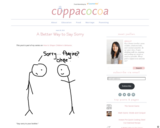
A better way to say sorry.

Students explore the theme of conflict in literature. They learn the difference between internal and external conflict and various types of conflicts, including self against self, self against other, and self against nature or machine. Stories are used to discuss methods of managing and resolving conflict and interpersonal friction. Note: The literacy activities for the Mechanics unit are based on physical themes that have broad application to our experience in the world â concepts of rhythm, balance, spin, gravity, levity, inertia, momentum, friction, stress and tension.
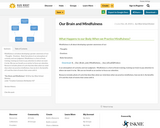
Mindfulness is all about developing a greater awareness of our:
- Thoughts
- Emotions
- Body Sensations
In an atmosphere of curiosity and non-judgment. Mindfulness is a form of brain training, training our brain to pay attention to where we want it to be. We use our breath as an anchor to focus our attention.
Resource includes photo of cycle that describes what our mind does when we practice mindfulness, how we do it, the benefits of it and the chain of events that comes with it.

A collection of supports for positive behaviour and intervention in the classroom.
Videos
Tools
Blueprints
Presentations
Training
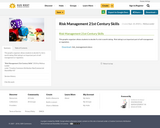
This graphic organizer allows students to decide if a risk is worth taking. Risk taking is an important part of self-management or regulation.
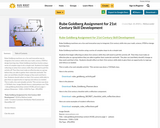
Rube Goldberg machines are a fun and innovative way to integrate 21st century skills into your math, science, STEM or design learning class.
Rube Goldberg machines involve using a series of complex steps to do a simple task.
Students first begin reflecting on what 21st century skills they will need to pull this activity off. Then they must make an effective plan as a group before they are able to gather their materials and build. The plan can (and likely should!) change as they work and that is fine. Students should reflect on their 21st century skills daily to give them an opportunity to regroup and refocus as needed.
This is really a fun and valuable activity! This version was done a 7/8 Math class.
Image Details
Source: www.pxleyes.com
Title : rube goldberg photoshop contest (4530), pictures page 1 – pxleyes
Dimension : 1500 x 1230
File Type : JPG/JPEG
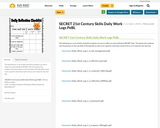
The following are a set of daily checklists students can use to reflect on each individual SECRET skill. The log has the students rate themselves on the sub skills of the big skill as well as set a goal for what they need to focus on to improve the next day.
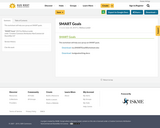
This worksheet will help your group set SMART goals.
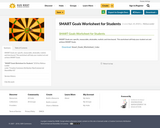
SMART Goals are: specific, measurable, attainable, realistic and time bound. This worksheet will help your student set and achieve SMART Goals.

Low self-esteem is having a generally negative overall opinion of oneself, judging or evaluating oneself negatively, and placing a general negative value on oneself as a person. People with low self-esteem usually have deep-seated, basic, negative beliefs about themselves and the kind of person they are. These beliefs are often taken as facts or truths about their identity, rather than being recognised as opinions they hold about themselves. It is important to know that low self-esteem is a common problem for many people in our society – so you are not alone. Low self-esteem can occur as part of a current problem (such as depression), or as a result of other problems (such as chronic illness, relationship problems) or it can be a problem in itself. Either way, the good news is that you can take steps towards developing more healthy self-esteem.
**Website includes worksheets, workbooks and information sheet on self-esteem.
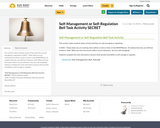
This activity makes students aware of how well they are self-managing or regulating.
It ASKS : "Today when you are working, there will be a clock or timer on the SMARTBoard. At random intervals, you will hear a beep or a bell. When you hear the sound, reflect on your behaviour. Are you self-managing?"
Students complete the chart attached to measure their growth and ability to self-manage or regulate.
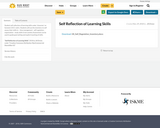
Student self reflection of learning skills under 'character' on Sunwest 21CC rubric.
Students will use the inventory to self assess their skills in:
- time management
- self regulation
- organization
- study skills & test anxiety
Assessment can be used to guide goal setting and explicit teaching of skills.
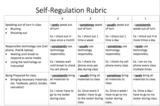
This is a rubric that can be used to Assess students Self-Regulation in the classroom.
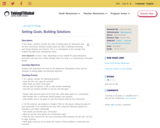
In this lesson, students consider the value of setting goals for themselves and for their community, thinking critically about the idea of defining community and shared interests and concerns. This is an introduction to the concepts that underlie the Millennium Development Goals.
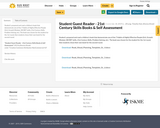
Student's prepared and read a children's book that demonstrate one of the 7 Habits of Highly Effective People (Grit, Growth Mindset, SECRET skills, 21st Century Skills, Problem Solving, etc). The book was chosen for the student for the 1st round, then students chose their own book for the second round.
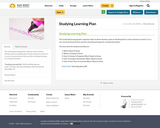
This studying/learning graphic organizer helps students develop a plan to deciding what to study and how to study it. It is a very structured format that used the chunking technique for sorting information.
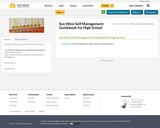
Sun West Self Management Guidebook for High School